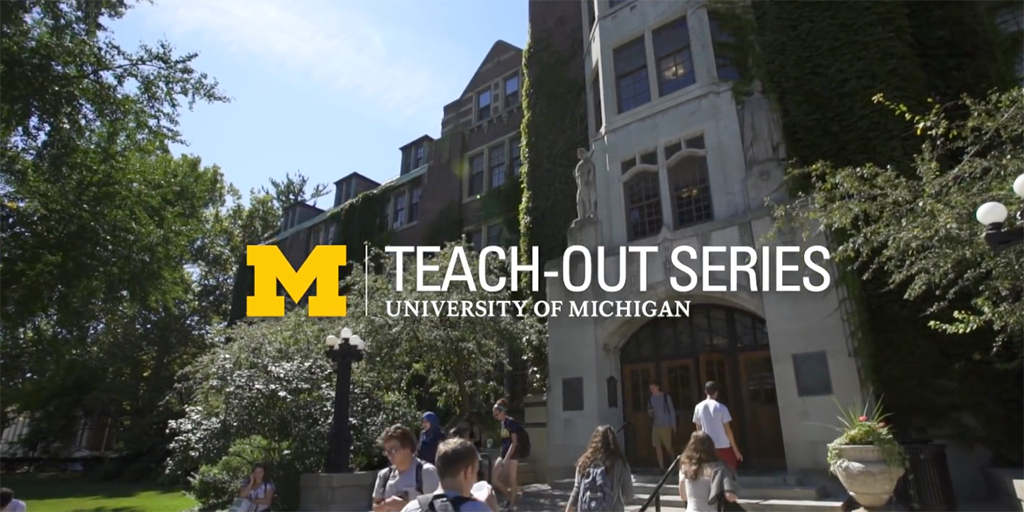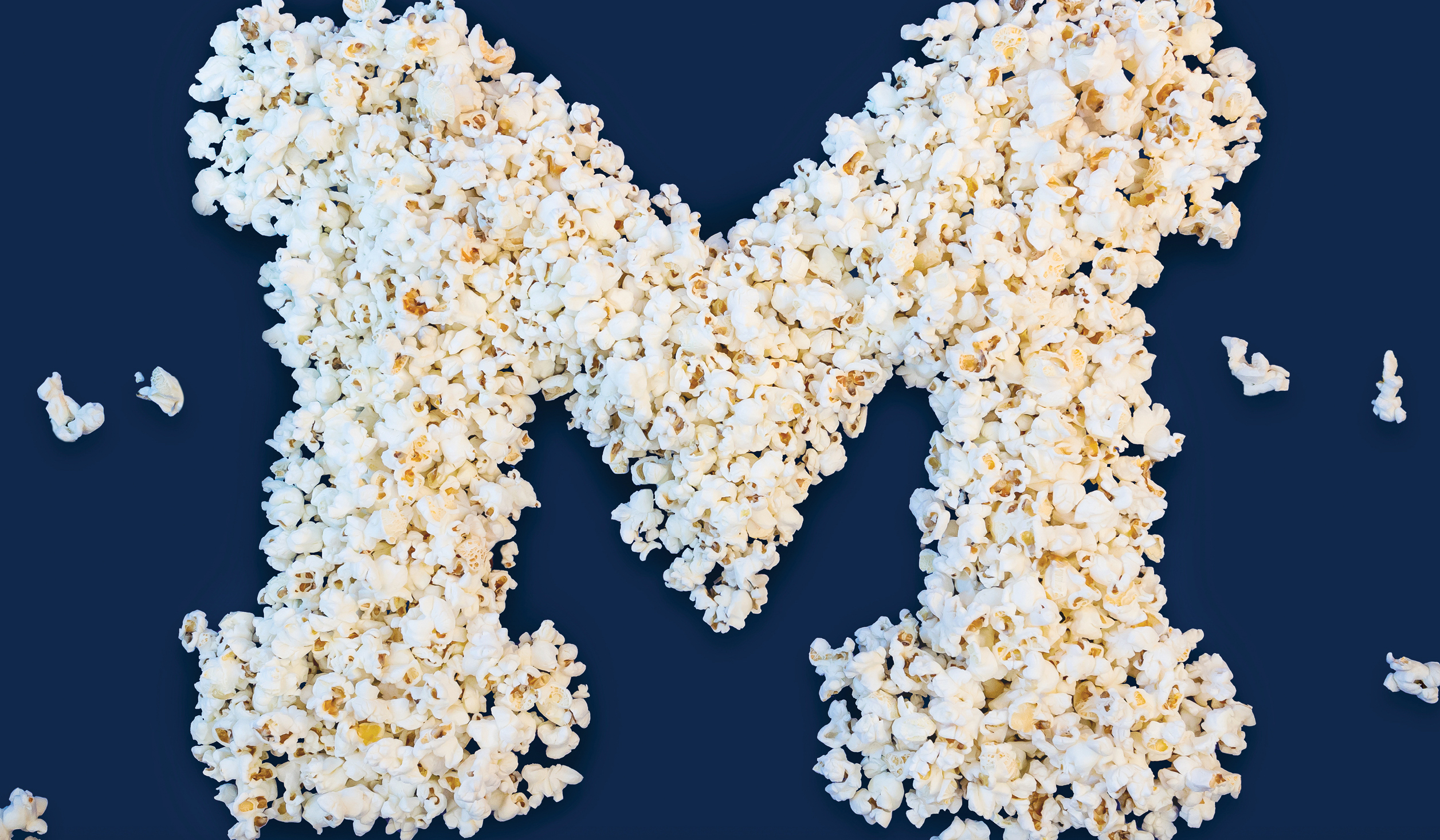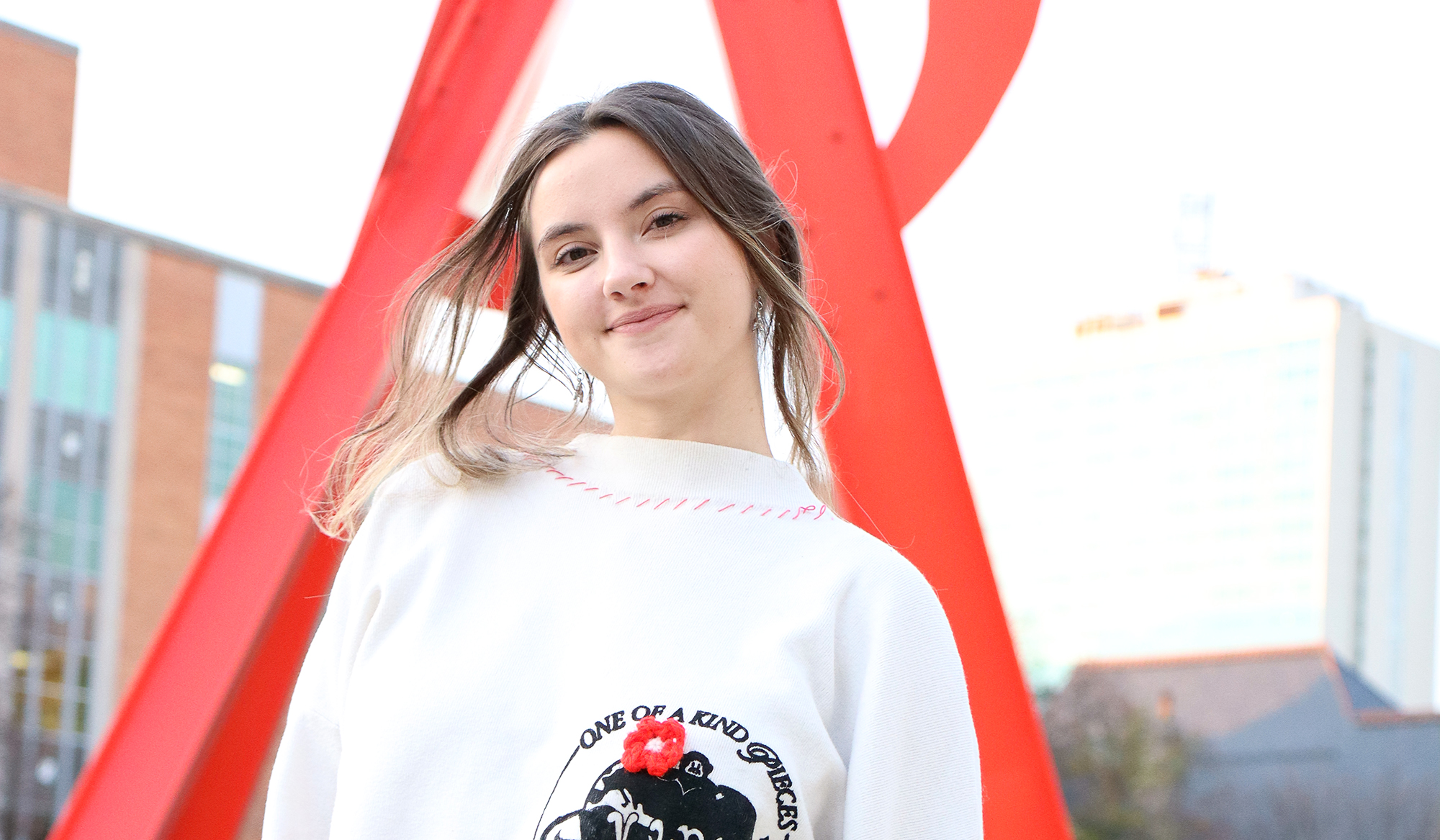U-M has long been at the forefront of the intersection between technology and education. The University’s newest innovation is a digital version of an old method: teach-outs. Over 50 years ago, teach-ins began at U-M as a means to discuss important issues. They spread worldwide, leading to the first Earth Day. Teach-outs take the concept online, says James L. Hilton, vice provost for academic innovation, dean of libraries, and professor of information. He discusses this new twist on an old method.
How long have you been working on teach-out programming?
The idea emerged from faculty conversations in early 2017. There was a desire to engage the public in topics that matter to society and where our faculty have expertise, in ways broadening participation. Faculty also wanted to create learning opportunities quickly, while topics are fresh.
What are some topics?
So far, we’ve announced four teach-outs, all ideas from faculty: One, when and how democracies transition to more authoritarian forms of rule. Two, fake news, a topic of vital interest to our community given that much of our craft is focused on the analysis of facts and data. Three, communicating and understanding scientific research. And four, the future of Obamacare.
Why are these classes so innovative?
Like their predecessors, teach-outs are short, weekend-long learning experiences on a specific current issue. They are innovative because they are available on an accessible, open educational platform to anyone with an interest and an internet connection. They provide opportunities for interaction and conversation at a global scale. You can interact with people you might never encounter otherwise, go back and review lectures and discussions at your own pace, and many times, rather than just when the professor calls on you.
U-M Teach-Out Series
Michigan alumni are invited to participate in the first teach-out series, which includes topics including fake news, communicating and understanding scientific research, and the future of Obamacare. Go online for more information about the teach-outs.
The original teach-ins were on campus. What does it mean for U-M and the larger community that teach-outs are online?
We can experiment with new ways of interacting with learners from across the globe. It opens possibilities for creating local events that dovetail with the online events. An alumni club, for example, might host face-to-face meetings of people enrolled in the teach-outs. It opens the possibility of creating online cohorts. Perhaps we create special online discussion sections open only to alumni. The possibilities are many and, as we experiment and learn, teach-outs will evolve.
What are today’s social issues you feel are most important to students on campus, alumni, and the broader community?
The first four teach-outs are driven by interests of faculty who are putting them on. Other topics might include the future of public higher education, privacy in the networked world, globalization, ethics of big data, student debt, automation and the future of work—topics tapping faculty expertise that resonate with conversations outside the academy.
What are your favorite aspects and anecdotes about teach-outs?
The speed. Typical courses take two years from start to finish to get into the curriculum. MOOCs (massive open online courses) typically take six months. A teach-out can come together in as little as one month. Teach-outs really did come about because a small group of faculty wanted to do something that would engage the public conversation and they wanted to do it quickly. The first will launch a bare six weeks from that first conversation.
What will alumni appreciate about teach-outs? How can it help them engage with their alma mater? Are there aspects appealing to different generations?
Teach-outs offer our alumni the opportunity to reconnect with the University’s teaching and learning side—to return to the classroom again and again, to experience the joy of discovery and reflection, to connect with old friends and to make new friends in the context of a conversation that matters.





